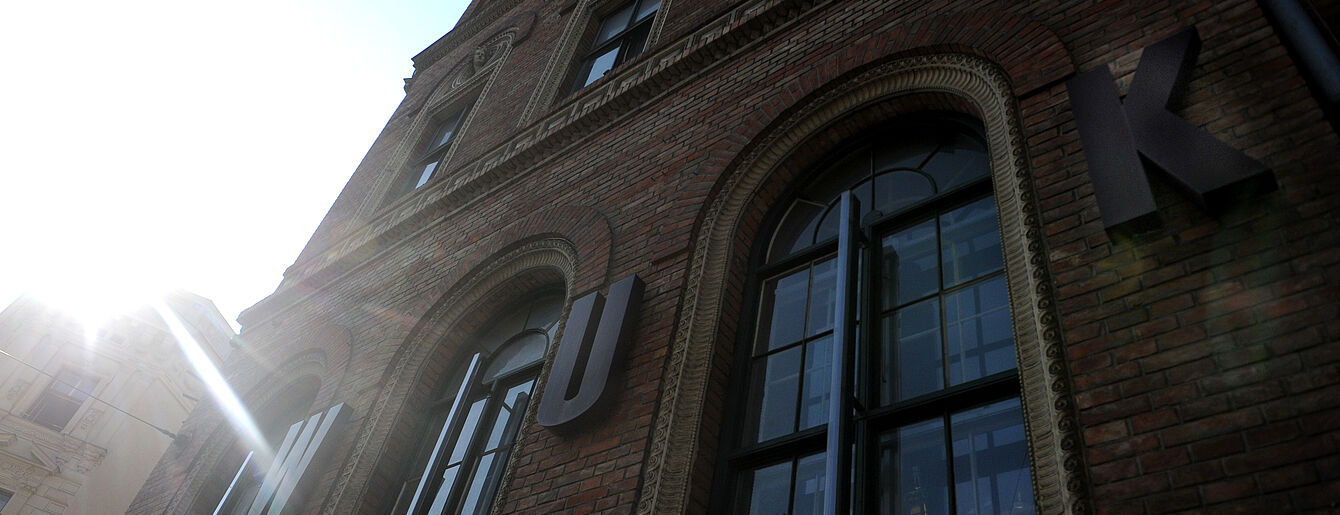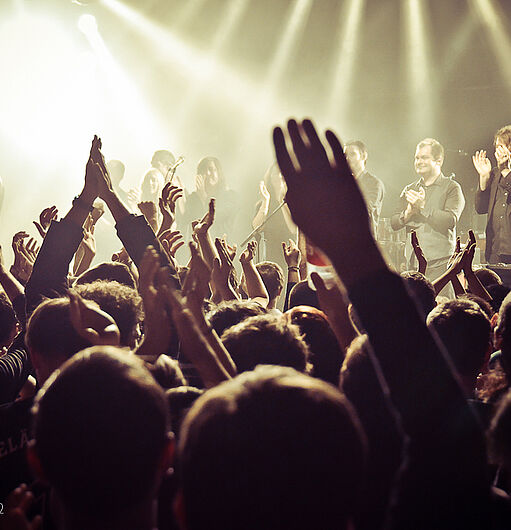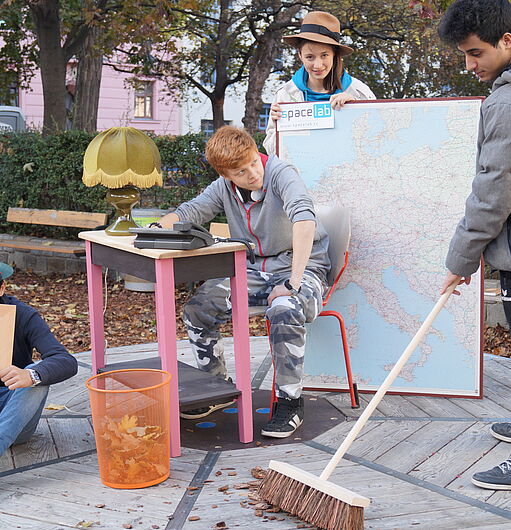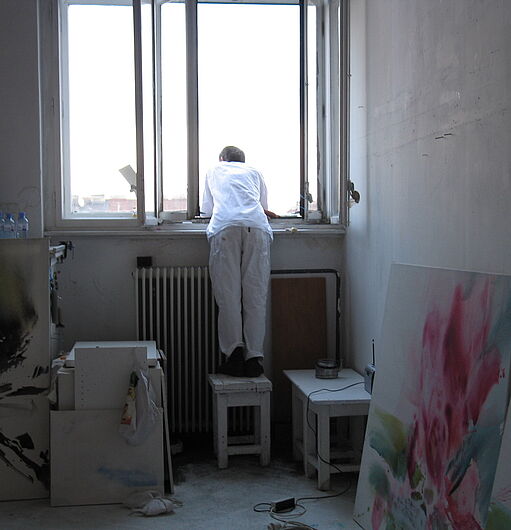
WUK
The philosophy behind the practice
WUK is an acronym and stands for “Werkstätten- und Kulturhaus”, roughly meaning “House for Workshops and Culture”. The building is laid out on 12,000 square metres and includes a stage, a concert hall, an exhibition hall and photo gallery, workshops and studios, work spaces for socio-political groups, a place for education and counselling, a senior citizens’ centre and school, rehearsal studios for music and dance, an intercultural centre, work stations and a party space.
The WUK is a place for study, for trying and doing things, for participation and sharing. The WUK creates leeway for creativity. It is a laboratory and a place of practice in one.
Measured in terms of square metres and versatility, the WUK is one of the largest socio-cultural centres in Europe. More than 200,000 people visit and make use of the WUK every year.
The WUK is an open cultural space,a space for lived interaction between art, politics and social issues. An expanded cultural concept becomes manifest, which transcends the everyday meaning of the word culture.
As a socio-cultural centre it focuseson advancing processes of emancipation, independence and help to self-help, cultural work in the community, self-management, self-organisation and autonomy.
As a centre of art and culture, the main emphasis is on the promotion of the production and presentation of innovative, experimental, interdisciplinary, critical art and culture on a local, regional and international level.
The WUK gets itself organised: Three pillars
WUK’s organisational structure comprises of three pillars: Cultural Productions, WUK Education and Counselling as well as the WUK Socio-Cultural Centre. The Association for the Creation of Open Culture and Workshop Houses constitutes the legal umbrella organisation for these three pillars. About 650 members elect an executive board of six every two years.

WUK Cultural Productions
The audience for art.
In its event and exhibition spaces, the WUK offers an elaborate program of music, the performing arts, theatre, dance, the visual arts, photography, film and media art, literature and party, children’s culture as well as socio-political and interdisciplinary events.
WUK’s mission is to be committed to sub-culture, off-culture, experiment, taking up critical and future-oriented issues and solid entertainment.

WUK Education and Counselling
Participation instead of exclusion.
During the renovation of the building in 1983, the WUK began to train disadvantaged teenagers in craftsman’s trades. Today, the WUK supports more than 4,000 people annually in 12 education and counselling institutions to prepare them for entry into the job market, thus ensuring greatest possible participation in society. The range of offerings includes counselling and coaching, vocational guidance, mandatory school-leaving qualification courses as well as employment in agricultural social projects. Based on its long-standing experience, WUK Education and Counselling was able to establish itself firmly as a centre of excellence for integration in the job market.
The WUK strives to support young people in their self-determination, enable participation and promote decision-making and responsibility.

The WUK Socio-Cultural Centre
Autonomous and grassroots democratic.
Around 150 groups, initiatives and individuals work in seven self-organised sectors. What they have in common are grassroots democratic decision-making structures and the management of sectoral issues by way of a plenary assembly, which convenes once a month. The activities of this unique structure representing such a cultural variety are augmented by two in-house media, WUK Radio on Orange 94.0 and the newspaper WUK Info Intern.
Visual Arts
14 artists plus guests, 10 studios, 4 guest studios.
The Fotogalerie Wien (photo gallery) and the IntAkt (International association of female Visual Artists) are part of the visual arts sector.
Socio-political initiatives
27 groups and 14 guest groups.
The spectrum ranges from cultural exchange and environmental organisations over senior groups to self-help and human rights initiatives.
Intercultural initiatives
7 groups
The groups representing different nationalities share the common goal of standing up for equal rights and combating racism. The fields of their commitment range from the support and lobbying for immigrants to the promotion of art and culture.
Children and youth
2 alternative schools, 1 college for applied sciences, 3 children’s groups, 1 day-care centre with a total of 150 children.
The promotion on an equal basis of intellectual, social and manual skills, self-determined living and learning as well as equal relations based on partnership between children, teachers, care-givers and parents constitute the main focal points of all groups.
Music
40 music groups and individual musicians, 17 rehearsal rooms.
The music sector runs an open sound studio.
dancetheatreperformance WUK (ttp WUK)
44 artists, 17 guest artists, 3 practice rooms.
The sector offers space for production, practice and research for artists from the independent dance and performance scene.
Workshops
18 groups and individual artists, 12 workshops, 6 studios, 3 guest studios.
The workshop area sees itself both as a field for experimentation and a production centre for traditional handicraft techniques and skills as well as for innovative interdisciplinary artistic-artisanal projects.
The Association
The WUK legal entity is the “Verein zur Schaffung offener Kultur- und Werkstättenhäuser” (Association for the Creation of Open Culture and Workshop Houses). A six-member board heads the association and decides the strategic direction of WUK. At the annual general assembly of the members fundamental decisions are made, and every two years a new board is elected.
All of the current 650 WUK members have voting rights.
